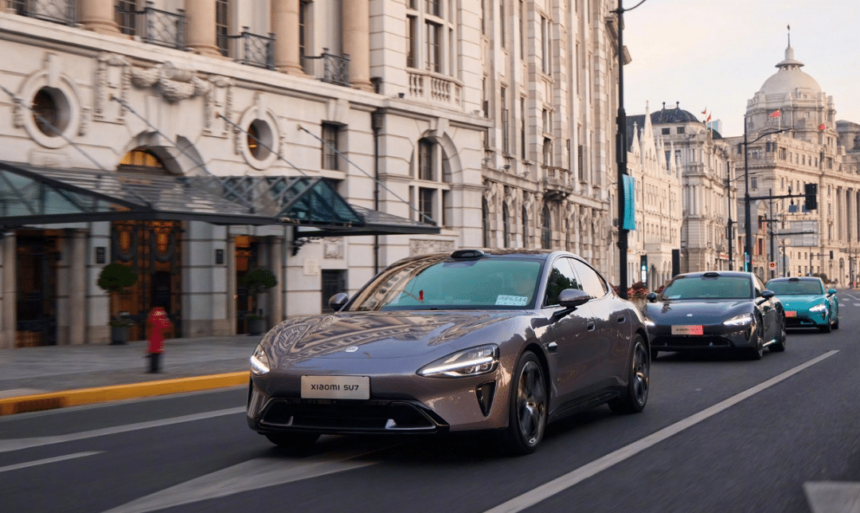Xiaomi Sets Record for Fastest Production of 100,000 Cars
Xiaomi has made history by achieving the fastest time for a new car producer to reach 100,000 cars off the production line. This milestone has not only boosted the fortunes of Xiaomi Auto unit but has also led to significant improvements in financial performance, as evidenced by the latest third-quarter results.
The third-quarter figures for Xiaomi are nothing short of remarkable, with a 30.5% year-over-year increase in revenue, reaching 92.5 billion yuan (12.8 billion USD). Net profit also saw a 4.4% year-over-year increase, totaling 6.3 billion yuan (0.9 billion USD). The company’s cash reserves have reached a record high of 151.6 billion yuan (21 billion USD), while R&D expenditure rose by 19.9% year over year, reaching 6.0 billion yuan (0.8 billion USD).

Just a day after delivering the 100,000th Xiaomi SU7, the company continues to make headlines. The proud owner of the milestone car expressed her admiration for Xiaomi and its smart driving features. The delivery of the SU7 Pro, in radiant purple, signifies the brand’s growing popularity and success.
The 100,000th SU7 rolled off the production line in just 230 days, setting a new record in the industry. This achievement surpasses the previous record set by Aito at 448 days and outpaces established automakers like Tesla, Nio, and Li Auto in production speed.
Initially targeting 100,000 cars for the year, Xiaomi has now revised its production goal to 130,000 for 2024. The factory’s annual capacity is set at 150,000 vehicles, with current production levels exceeding 20,000 cars per month due to a double shift work pattern.

The increased factory utilization and accelerated production rate have positively impacted Xiaomi Auto unit’s financial performance. Although the auto business contributed over 10% of Xiaomi’s total revenue, it reported a loss of 1.5 billion yuan (200 million USD).
According to Lin Shiwei, Xiaomi Group’s CFO, the group’s revenue growth in the third quarter was largely driven by the automotive business. CEO Lei Jun hailed the Q3 results as the “strongest performance in history” for the group, with President Lu Weibing expecting the automotive sector to lead growth in the coming year.
Xiaomi Auto delivered 39,790 cars in the third quarter, generating 9.5 billion yuan (1.3 billion USD) in revenue. Despite the unit’s loss of 1.5 billion yuan, the loss per car sold dropped to approximately 38,000 yuan (5,250 USD).

The reduction in loss per car and an increase in gross profit margin to 17.1% indicate Xiaomi Auto’s improved performance as production scales up. With an expected decrease in BOM (bill of materials) costs as deliveries rise, the unit is poised for continued success. The gross profit margin matches that of Tesla in the third quarter, boding well for future performance.
In the third quarter, the average selling price of the SU7 rose to 238,800 yuan (32,900 USD), driven by increased demand for the Max and Pro versions. Xiaomi’s smart EV sales centers have expanded to 127 locations in 38 cities across mainland China, showcasing the brand’s growing presence in the market.
Sources: Xiaomi, Fast Technology





